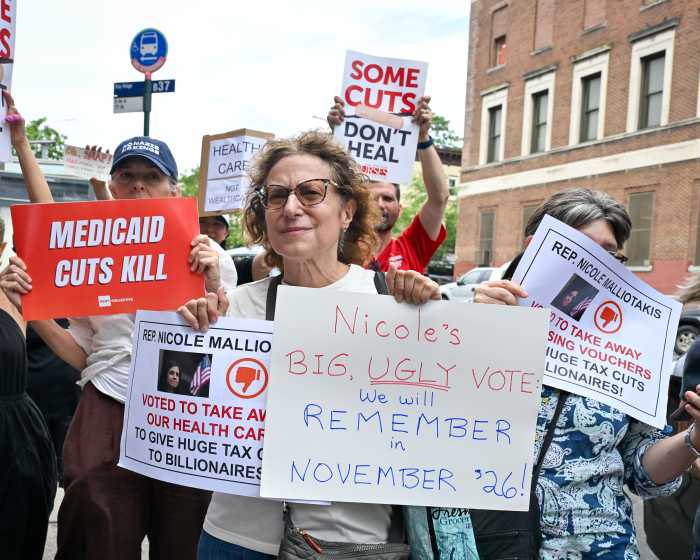If there was one word in the English language that Hassan Askari would like to redefine, it would be the word “tolerate.”
“Tolerating someone means that you don’t like him, but you put up with him anyway,” explained Askari, a Bangledeshi-born Muslim and college student who made headlines when he helped defend a Jewish couple being beaten on a Brooklyn-bound Q train last year. “It’s more important to be a brotherhood, to understand one another rather than to tolerate them – to learn that we all have a sense of unity.”
By assisting a complete stranger during the hate-fueled attack, Askari truly stepped-up to intolerance and bias.
Civic and religious leaders followed his example Wednesday as they participated in “Stepping up: A Community Conference to Prevent Hate Crimes” at Brooklyn College.
The forum, sponsored by the college’s Center for the Study of Brooklyn, We Are All Brooklyn and the Jewish Community Relations Council of NY (JCRC), was called so community leaders from throughout the borough could get together and discuss how best to fight the increase in hate crimes the city is currently undergoing.
“There has been a 31 percent spike in hate crimes across the city in recent months,” said Rabbi Bob Kaplan, the Director of the Jewish Community Relations Council of New York’s Cause-NY. “We have to say as loud and as clear as we can that such behavior is simply unacceptable and we have to ensure that the community is knowledgeable in how to deal with hate crimes when they happen.”
Speakers at the forum included Inspector Michael Osgood, the commanding officer of the NYPD’s Hate Crimes Task Force and Kings County District Attorney Charles Hynes, who reaffirmed his office’s commitment in investigating and prosecuting hate crimes.
In order to make sure that everyone received a quick primer about how to handle hate crimes, organizers handed out palm cards explaining just what a hate crime was as well as how someone can report one to authorities.
The cards also have a listing of organizations, such as the Asian American Legal Defense and Education Fund (AALDEF) and the Arab American Family Support Center (AAFSC) that would assist victims of hate crimes.
Those in attendance also discussed the root causes of hate crimes and how to prevent them from exploding into biased vandalism or even violence.
Kaplan explained that forum attendees would have a second meeting on June 3, where they will outline a strategic plan on how to best combat hate crimes in the city. The group hopes to publish their plans once they are collected.
Speaking from his own experiences, Askari said he was taught to stand up if he saw a crime or an attack.
When he was on the train this December, witnessing a bias attack right in front of him, “nobody stood up,” he said.
“I never expected to see bigotry and hatred when I came here,” said Askari. “Not like that. [America] is a culturally diverse culture. It’s a melting pot where Jewish people, Christian people and Muslim people can all come together. It’s an example for the rest of the world.”
Boiling down some of the causes of the rise in bias crimes throughout the city, Reverend Clinton Miller, the pastor of Brown Memorial Baptist Church and Stepping Up’s keynote speaker said that wars with people of another culture as well as economic and political uncertainty – which America is currently undergoing – are breeding grounds for hate.
“Hate looks for these factors like a fish looks for water…like a virus looks for heat,” Miller explained. “The conditions have to be just right before hate can prosper.”
History tells us that hate propagates whenever the status quo is threatened, the Reverend said.
“Change is inevitable, but when that change occurs, there is always a backlash,” he noted. “Right now we are on the horizon to see a president that has never been seen in the White House – a woman or a Black man. That kind of change gives new rise to hate. You don’t have to be a rocket scientist to see that.”
“Every time better days are ahead, hate decides to give it another shot,” he said. “So every time we make progress, we have to be on guard to hate.”






















